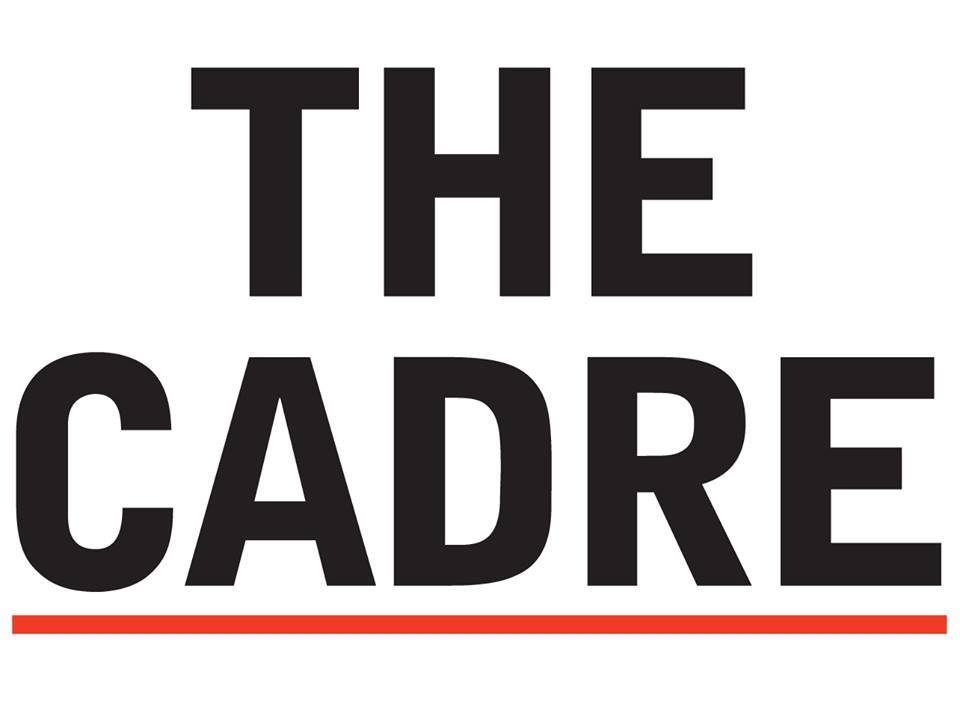By: Lucy Morkunas
The Special Committee on Democratic Renewal is on the road again and on Thursday, February 11th, set up shop in Morell. Jordan Brown, chair of the Special Committee, began the evening by saying that the purpose of this Community Forum was to get us thinking and looking at the different possibilities.
The seating arrangement of the Community Forum is very different from the Democratic Renewal community meetings of last fall. Gone is the head table and the rows of chairs for the audience. Now the chairs are in a circle and Committee members sit scattered among the general public.  After watching a 9 minute video with Jordan Brown and our own Professor Jeff Collins, a microphone was passed around and the floor opened for discussion.
We did get thinking and looked at different possibilities, and a few things came up.
One of the concerns raised was that changing how people vote could ruin the country: send it from being 5th in the world to 105th.   The First-Past-The-Post (FPTP) voting system was touted as instrumental for the continued prosperity of Canada and any other system would negatively impact the lives of Canadians.
While it is hard to predict what will happen, we can take our cue from other countries.
Myth #1Â Changing the voting system would result in a loss of prosperity
New Zealand is the only country with a Westminster style government (like Canada’s) to change from using FPTP to a proportional system to elect candidates to parliament. New Zealand used the Mixed Member Proportional (MMP) voting system for the first time in 1996 and continues to use this system to the present day.  A common way to measure a country’s prosperity (or lack thereof) is Gross Domestic Product (GDP) which Investopedia defines as “the monetary value of all the finished goods and services within a country’s borders in a specific time period.â€Â  As you can see by the graph below, New Zealand’s GDP over the years matches that of Canada.
When New Zealand switched to MMP in 1996, there was no big drop in GDP. On the contrary, the graph shows that it went up and tracked the rise in GDP in Canada. However this rise has more to do with an economic boom in the United States that was felt globally than with the diversity of the 1996 New Zealand parliament. Voting system change and economic output are not connected.
Myth #2Â Our voting system is the reason for our standard of living
Twenty-five countries in the world exclusively use FPTP to elect representatives to government. Of those, Canada is the most prosperous. The United Nations Human Development Index uses information on life expectancy, per capita income and education to measure the health, wealth and opportunities – “achievements in human development†– of citizens in a country.  If we look at the top 10 countries in the Index, Canada is in ninth place, tied with New Zealand. Apart from the US and Canada, all the other high ranking countries use a type of proportional representation.
| 2014* | Country* | Bodyâ€** | Type | System** |
| 1 | Â Norway | Storting | Proportional | Party list PR |
| 2 | Â Australia | Senate | Proportional | Single Transferable Vote |
| House of Representatives | Majoritarian | Alternative vote | ||
| 3 | Â Â Switzerland | National Council | Proportional | Party list PR |
| 4 | Â Denmark | Folketinget | Proportional | Party list PR |
| 5 | Â Netherlands | House of Representatives | Proportional | Party list PR |
| 6 | Â Germany | Bundestag | Proportional | MMP |
| 6 | Â Ireland | Dail Eireann | Proportional | Single Transferable Vote |
| 8 | Â United States | Congress | Plurality/
majoritarian |
FPTP (plus 2 other majoritarian systems) |
| 9 | Â Canada | House of Commons | Plurality | FPTP |
| 9 | Â New Zealand | House of Representatives | Proportional | MMP |
* Human Development Index and its components available at http://hdr.undp.org/en/composite/HDI
** from https://en.wikipedia.org/wiki/Table_of_voting_systems_by_country#Voting_systems_by_country
The prevalence of countries with proportional systems in the top 10 suggests that a government that mimics the popular vote enhances human development. Uniquely enough, Canada and the UK (14th place) are the only two countries using FPTP in the top 50. Their peers are a mixture of monarchies and democracies that employ various types of government and electoral systems. Nevertheless, a more diversified legislature/parliament has the potential to improve the lives of Canadian citizens. What is not obvious is that proportional systems hurt the countries that use them.
It is absurd to think that a voting system alone determines the success or failure of a country (or a province for that matter.)Â Â Many different variables conspire to affect the well being of citizens, but one thing is certain: switching from FPTP to Mixed Member Proportional has not done New Zealand any harm.
Community Forums on Democratic Renewal continue until March 1st.  The schedule is here. These forums are a great opportunity to discuss electoral reform with people from many different political stripes and walks of life. Hope to see you there.
Lucy Morkunas
February 19, 2016
